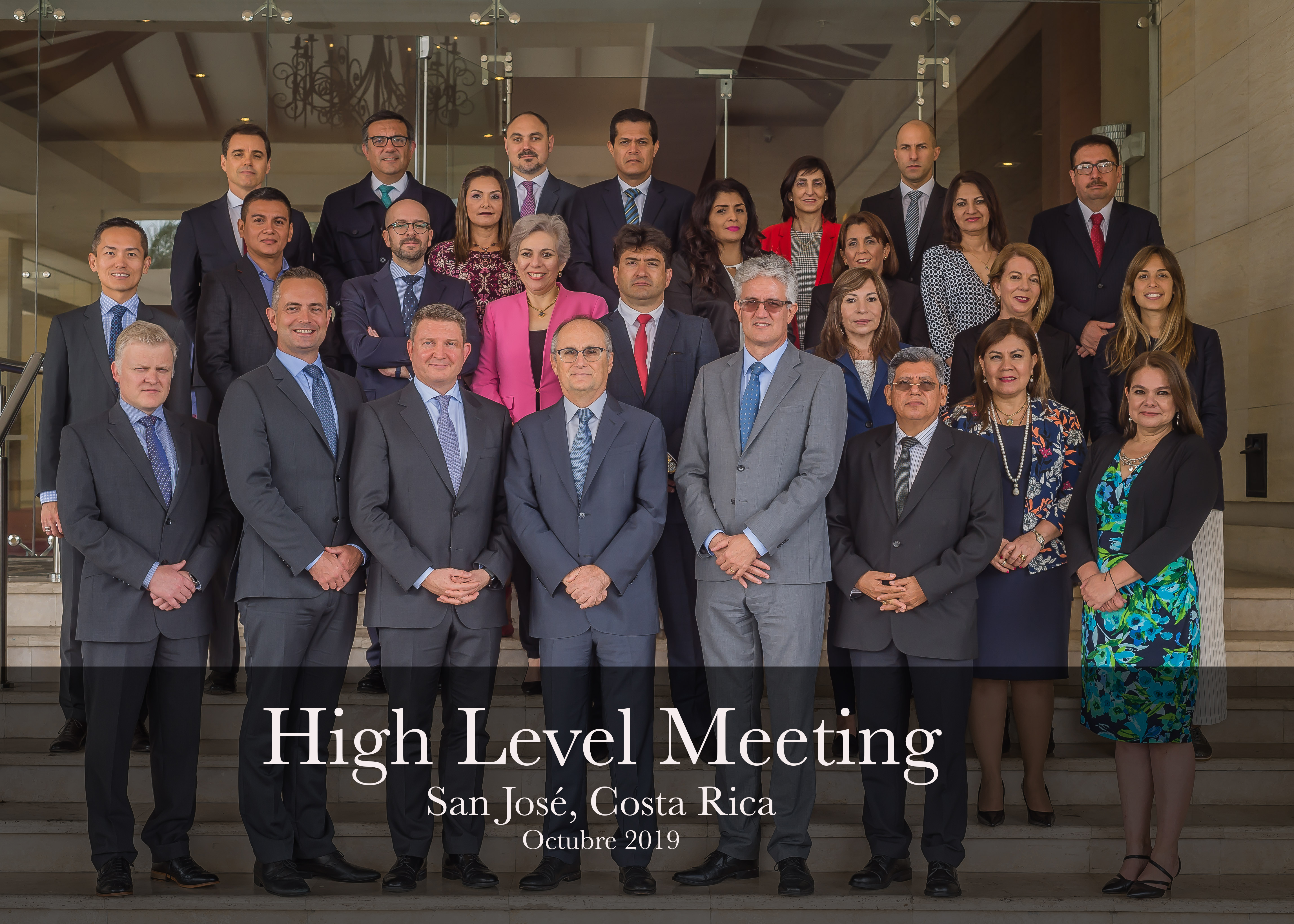Third high-level meeting on global insurance standards and supervisory priorities in the Americas
San José, Costa Rica, 14 October 2019
Senior insurance supervisors from Latin America met to discuss key risks affecting insurers in the region and different approaches to building insurance industry resilience to these risks.
This meeting brought together over 30 senior officials from insurance authorities to discuss the challenges to building a resilient insurance industry against a background of emerging global risks. The meeting was hosted by the Superintendencia General de Seguros de Costa Rica (SUGESE) and jointly organised by the Latin American Association of Insurance Supervisors (ASSAL), the International Association of Insurance Supervisors (IAIS) and the Financial Stability Institute (FSI) of the Bank for International Settlements (BIS).

Latin American supervisors are facing challenges in traditional issues related to the implementation of risk-based solvency regimes in the region as well as new challenges related to emerging risks posed by new technologies and climate risk. Building a resilient industry will be a relevant factor in reducing the protection gap and a key element for the industry's development in the region.
These High-level Meetings provide an invaluable opportunity to come together as supervisors to have an open exchange of views on a range of topics of relevance for supervisors in the region and for the IAIS. We look forward to continuing our collaboration with the FSI and ASSAL on these valuable events.
Against a global background of ageing populations, environmental and climate change and technological developments, supervisors from the region discussed the challenges to assessing insurers' exposure to risks arising from these trends that may affect their financial condition in the years ahead. The meeting noted that building a resilient insurance industry requires that supervisors implement regulatory frameworks that capture those risks and facilitate effective and efficient risk management by insurance companies.
Participants discussed two countries' experience in assessing insurers' resilience to risks affecting their solvency condition by stress testing, analysed different approaches to adjusting prudential frameworks to capture risks impacting insurers' operational resilience, and shared their views on challenges for assessing climate change risks.
Supervisory challenges in building resilient insurance industries are similar across jurisdictions. International sharing of experiences is key to gain better understanding of the different issues posed by emerging risks. The FSI will continue analysing the ranges of policy issues and implementation challenges faced by financial sector authorities on emerging risks related to technological developments and climate change in its FSI Insights series.



